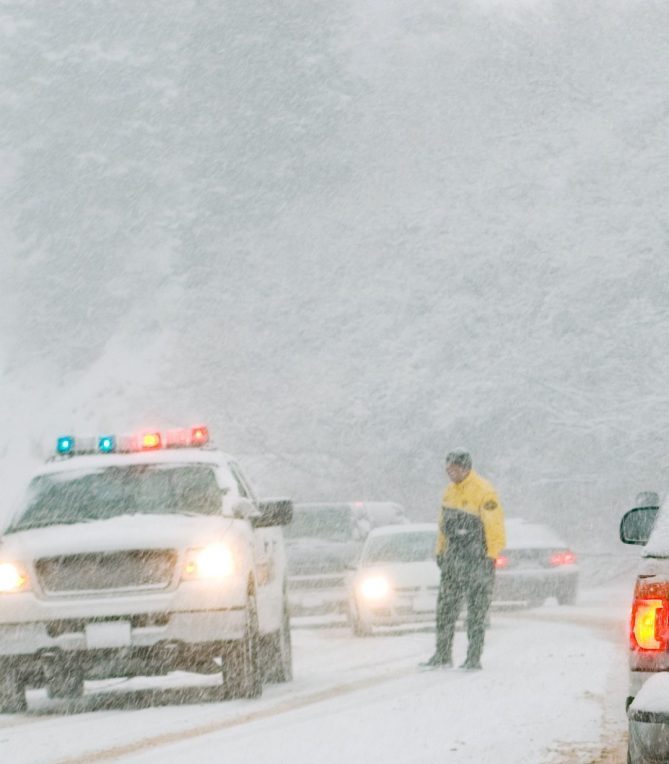
7 Driver Safety Tips to Keep You Safe on the Road
Unintentional accidents are the third-largest cause of death in Canada, and 14% of all fatalities are transport-related. Fortunately, many of these accidents are preventable, and there are simple but effective driver safety tips to keep you safe on the road. Read about the top seven tips below!
1. Get Good Rest
It is easy to get into the habit of pushing through fatigue and tiredness to finish a job, and in fact, you may feel pride in completing all of your deliveries despite being exhausted. But driving on too little sleep is dangerous.
One sleep expert found that 20% of Canadian drivers fell asleep at the wheel at least once in 2018, and this lines up with multiple reports that say one in five collisions are caused by drowsy driving.
Furthermore, a 2016 study concluded that driving on 4-5 hours of sleep is as just as dangerous as driving slightly above the legal alcohol limit. This means that drowsy drivers are slower to react, worse at making decisions, and more likely to fall asleep at the wheel than they otherwise would be.
Build plenty of time for rest into your schedule, and do not start a trip on too little sleep.
2. Know the Hours of Service Regulations in Your Area
Regulators recognize that drivers are under immense pressure to complete jobs on time, but being on the road too long leads to anxiety, exhaustion, and accidents. Drive safety solutions such as Hours of Service were created to decrease preventable accidents.
Review the hours-of-service rules for every province and/or country on your route. For example, Canadian drivers, must abide by U.S. regulations if they drive into the United States.

3. Eat Healthy While on the Road
Eating while driving is a risky distraction, but you must also consider the type of food you eat on your breaks. Unhealthy food from gas stations and fast food restaurants may cause fatigue, lethargy, spikes in blood sugar, and other problems that can cause inadvertent traffic accidents.
On the other hand, you shouldn’t drive while hungry. Hunger increases anxiety and can cause you to unwittingly increase your speed. On your trip, choose healthy food, high-protein snacks, and drinks that are low in sugar and caffeine.
4. Avoid Alcohol and Drugs
Consuming alcohol or taking drugs before getting on the road is reckless and life-threatening. The Canadian Council of Motor Transport Administrators found that 30% of known alcohol-related crashes resulted in death in 2015.
Also monitor your intake of legal drugs or stimulants because they can alter your ability to operate a vehicle. Many drivers think medication or caffeinated beverages will keep them awake, but it is easy take too much or experience negative effects.

5. Drive to the Weather Conditions
While it may be tempting to push yourself (and your vehicle) to make scheduled deliveries, driving in unfavorable weather or bad road conditions is not worth the risk. Not only do you need to worry about your driving, but you need to also be careful of the inexperienced drivers around you. Auto insurers say that auto claims increase almost 50% during winter months, and wet pavement, rain, snow, and fog make up the bulk of weather-related crashes.
If you find yourself in bad weather conditions, reduce your speed, stay alert, and stop when conditions get dangerous.
6. Keep Up with Regular Vehicle Maintenance
People who drive for a living are more likely to get into accidents because they drive more throughout the year. Keeping your vehicle well maintained will prevent accidents and injuries, especially when it comes to issues related to tires/wheels, windshield wipers, brakes, auto lights, and improper fluid levels. Plus, proper maintenance will save yourself (and your company) time at the shop and thousands of dollars in repairs.
Stick to your regular maintenance schedule, complete all of your safety inspections, and address problems with your vehicle as soon as you notice them.
7. Practice Defensive Driving
The National Safety Council reported that 26% of car crashes involved phone use, including hands-free phone use. Glancing at your phone is like driving blindfolded, so ignoring your devices altogether is a best practice. It is also smart to avoid eating or messing with your radio while driving.
Another way you can be proactive on the road is to follow the speed limit. According to the World Health Organization (WHO), the risk of fatality in a car-to-car collision is 85% at 65 km/h or higher. If you choose to speed, the minutes you may save are not worth your risk of fine, injury, or death.
A career on the road can be rewarding, but it can also be dangerous. Although accidents do happen, there are proven ways to reduce the chance of them happening. Practice these driver safety tips on every trip to keep yourself and everyone around you safer.




























